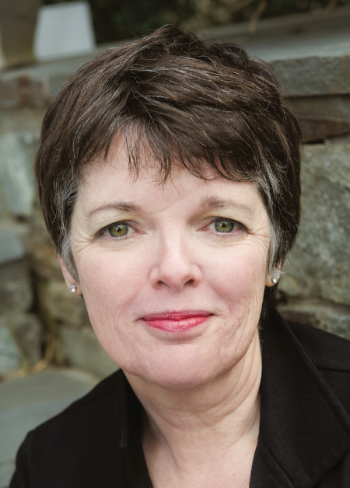
Acclaimed author Alice McDermott will visit Notre Dame on October 1 for a conversation about her work and its influences with Keough-Naughton Institute Fellow Sara Maurer.
McDermott’s newest book is What About the Baby? Some Thoughts on the Art of Fiction (2021). Her eighth novel, The Ninth Hour, was published by Farrar, Straus & Giroux in September 2017. Her seventh novel, (Someone, 2013), was a New York Times bestseller and a finalist for the Dublin IMPAC Award, the National Book Critics Circle Award, the Patterson Prize for Fiction, and The Dayton Literary Peace Prize. Someone was also long-listed for the National Book Award. Three of her previous novels, After This, At Weddings and Wakes, and That Night, were finalists for the Pulitzer Prize. Charming Billy won the National Book Award for fiction in 1998 and was a finalist for the Dublin IMPAC Award. That Night was also a finalist for the National Book Award, the PEN/Faulkner Award, and the Los Angeles Times Book Prize. Her stories, essays and reviews have appeared in The New York Times, The Washington Post, The New Yorker, Harpers, Commonweal, and elsewhere.
For more than two decades, McDermott was the Academy Professor and Richard A. Macksey Professor for Distinguished Teaching in the Humanities at Johns Hopkins University and a member of the faculty at the Sewanee Writers' Conference. She has received the Whiting Writers Award, the Carington Award for Literary Excellence, and the F. Scott Fitzgerald Award for American Literature.
From her home in Washington, DC, she answers our Three Questions.
Read more about the Keough-Naughton Institute's event with Alice McDermott.
___________________________________________
What are you working on?
I have two novels under construction—very different projects: one still a partial mystery to me, the other a complete mystery to me. So I'm having fun.
What are you reading?
The first months of the pandemic had me too distracted to read anything hefty; I seemed only to have the attention span for poems and plays and short stories. I went to the Russians to try to fix that, rereading The Brothers Karamazov, then Crime and Punishment. Now, slowly, Dostoevsky's Demons—which will probably take me into next year.
How has life changed for you during the pandemic?
Well, there are the obvious losses: travel (a big one), social spontaneity. Every plan for the future now carries the disclaimer, of course all this could change. I suppose a case can be made that this disclaimer has always been there, or should have been, but now I glimpse it—its eyebrows raised—every time I look at my appointment calendar.